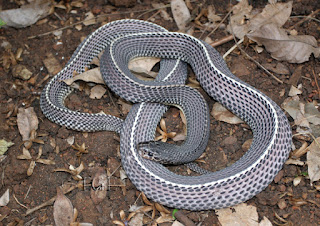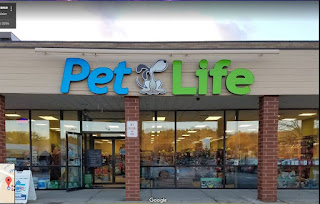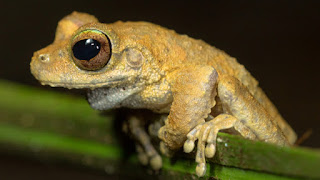3 different types of snake venom - Southlands Sun
PROFESSIONAL snake catcher, Warren Dick, explains the different types of snake venom in this article. First and foremost, to avoid getting bitten, never pick up any snake that you are unsure of. South Africa is home to about 170 different species of snakes, only 18 of which are considered to be potentially deadly, and 23 others have venom that has little effect on humans.
ALSO READ: WATCH: High spirits as Crow releases rehabbed python
A snake's venom was never designed to be used in self-defence to kill humans, the purpose of the venom is to enable the snake to capture its prey. The myth that one can die in just a few minutes after a snake bite is simply not true, in most cases one has ample time to seek medical assistance. In South Africa there are three types of venom, neurotoxic, cytotoxic and haemotoxic.
Neurotoxic venom:
This type of venom is possessed by the mambas and the cobras. This venom effects the nervous system, one would experience pain at the bite site with little or no swelling. Symptoms include drowsiness, vomiting, sweating, metallic taste in mouth, difficulty swallowing and breathing. One's respiratory muscles are gradually paralysed which can lead to respiratory failure.
Cytotoxic venom:
This venom is held by the puff adder and the Mozambique spitting cobra. This venom affects the tissue cells, one can experience immediate burning pain at the bite site, followed by swelling that can continue for several days. Local tissue necrosis is also very common, which may result in significant tissue damage and even the loss of a limb.

Haemotoxic venom:
This venom is possessed by the boomslang and the twig snake. This venom effects the bodies blood clotting mechanism. Usually, little or no pain and swelling is experienced. Symptoms include oozing of blood from the site of the bite, headache, sweating, confusion, nausea and vomiting. Followed by bleeding from any small cuts and from the mucous membranes and eventually severe internal bleeding.
"Now that I have probably made you even more scared of snakes, let me reassure you of this fact. The vast majority of those who are bitten by snakes and require hospitalisation survive. About 10 to 50 deaths occur due to snake bites in Southern Africa each year, most fatalities are those who are very far from medical help. In the Durban area, where we have a high population of black mambas and millions of humans, there are only one or two black mamba bites a year. To my knowledge, no one in Durban has died from a black mamba bite in quite a few years."
"I am often asked, what is the most dangerous or venomous snake in South Africa and what signs and symptoms to look out for should one get bitten? This question is not very easy to answer as there are many variables that play a role in each snake bite case. Factors to consider are age and health of the victim, where the victim was bitten, also the size of the snake as well as, how much venom was injected. Most snakes can control the amount of venom which they inject. Seeing as venom is a very precious commodity for a snake it is used sparingly, so it is not unusual for someone to get bitten by a highly venomous snake and have no venom actually injected, this is called a dry bite."
Some of the symptoms to look out for if you have been bitten by a snake that could help you decide if you do need medical attention include immediate burning pain followed by swelling of the affected limb, dizziness, difficulty swallowing and breathing, droopy eyes and nausea.
What to do in the event of a snake bite:
Keep calm. If it is safe to do so, try get a description of the snake responsible, take a photo for identification purposes if possible. But remember, first and foremost is your safety. Irrespective of the snakes identification, a doctor should treat your symptoms.
Get to a hospital, if you live within an hour of the nearest hospital, get there as soon as possible. Don't worry about any other first aid measures. The best hospitals to treat snake bites in Durban are Netcare St Augustine's and Inkosi Albert Luthuli Central Hospital.
What not to do in the event of a snake bite:
• Do not cut and or suck at the bite site, this is not effective and may in fact add bacteria, making the problem worse.
• Do not apply a tourniquet, snake venom is absorbed by the lymphatic system not the blood system. Applying a tourniquet may concentrate the venom at the site of the bite especially with cytotoxic bites causing severe necrosis and possibly the loss of a limb.
• Do not give the victim alcohol.
• Do not panic, the aim is to keep the victim calm.
• Avoid excessive movement, this and panic will just get the venom spreading faster.
• Do not inject anti-venom. Anti-venom should only be administered within an emergency room setting, as a large portion of the population are allergic to it and may experience anaphylaxis which can be life threatening if adrenalin and ventilation is not on hand.

Spitting cobra eye treatment:
If spat at by a spitting cobra, rinse eyes out under clean running water for 15 to 20 minutes, a hose pipe on low pressure is good for this. If no water is present, milk, beer or even urine can be used. The faster you can flush your eyes out, the less chance you have of getting permanent eye damage. After rinsing the eyes, visit a doctor for anti-inflammatory eye drops.
"I hope that this article helps you understand snake bites more and remove some fears. The vast majority of the snakes I catch in the Durban area are completely harmless, having no fangs and no venom."
All information acquired from Johan Marais' book entitled, Snakes and Snake Bite. Contact Warren on 072 211 0353 to have unwanted snakes removed.
DID YOU KNOW?
Click on the words highlighted in red to read more on this and related topics.
To receive news links via WhatsApp or Telegram, send an invite to 084 418 2286.
The Southlands Sun is also on Facebook, Twitter and Instagram – why not join us there?
Do you have more information pertaining to this story?
Feel free to let us know by commenting on our Facebook page or you can contact our newsroom on 031 903 2341 and speak to a journalist.
(Comments posted on this issue may be used for publication in the Sun).



Comments
Post a Comment